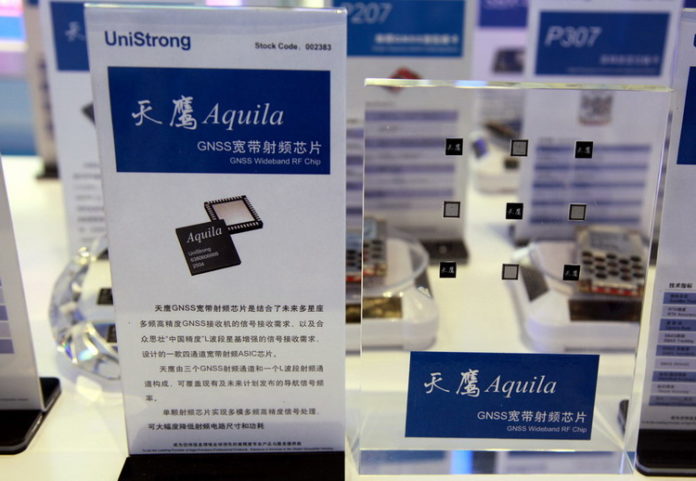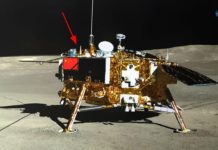China’s first four-channel Global Navigation Satellite System (GNSS) broadband radio frequency (RF) chip “TianYing” was released on 23 May 2017. It is an improved continuation of the Satellite-Based Augmentation System (SBAS) “TianQin” which was launched last year.
As both the BeiDou global system and the European Galileo system began to expand their scope of services, there are more choices of navigation frequency and signal availability, especially in the provision of rich content signals for high-precision, multi-mode, multi-channel receiver. This will be a challenge for technology utilizing multi-mode, multi-channel receivers with conventional narrowband RF reception, as well as demand for miniaturization of the receivers; therefore the “TianYing” RF chip is conceived as a result.
The “TianYing” chip consists of three GNSS RF channels and one L-band RF channel to meet the signal reception requirements of the high-precision, multi-mode and multi-channel GNSS receivers, as well as fulfilling the “China Accuracy” L-band SBAS in terms of different types of antennae (single, dual, triple, etc).
Predecessors utilize narrowband RF chip design, single antenna all-constellation multi-frequency OEM board using 4 RF chips with 17 filters. The broadband RF chip like the “TianYing” chip only uses 1 chip and 4 filters, which significantly reduces the RF circuit size and power consumption. This is an adaptation for the unmanned aerial vehicle (UAV) and advanced-driver assistance systems (ADAS) for the future, as well as portable high-precision positioning receiver needs.
The “TianYing” (which stands for ‘Eagle’ in Chinese) was developed and released by the Beijing UniStrong Science & Technology Co. Ltd. It is officially also named “Aquila” – the Latin word for Eagle, corresponding to the constellation.
In the last annual meeting, the company released “TianQin” and it was also named in similar manner, according to the Lyra consellation. These two chips are instrumental in supporting the “China Accuracy” SBAS.







